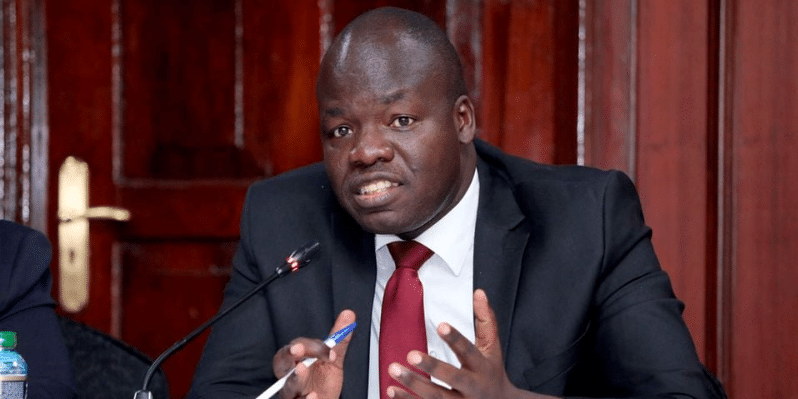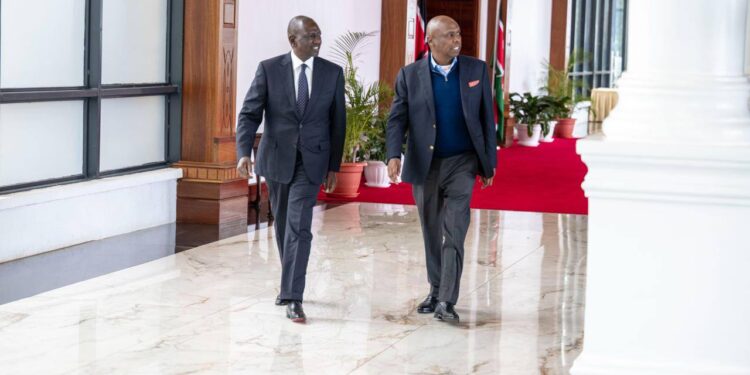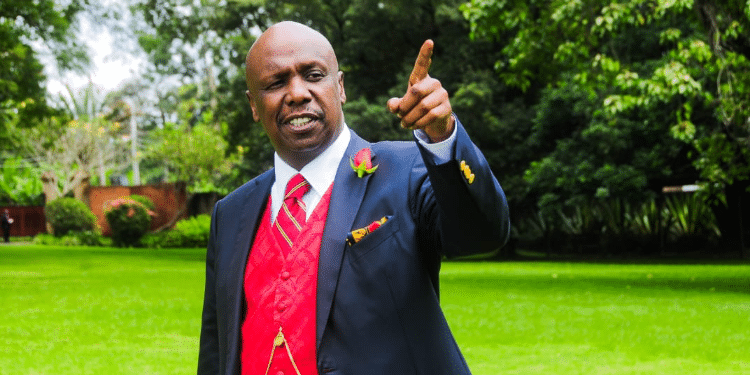
IEBC selection panel chair, Dr Nelson Makanda. Photo/Handout
By Newsflash Reporter
The integrity of the ongoing recruitment process for the Independent Electoral and Boundaries Commission (IEBC) has come under sharp scrutiny following the unexpected inclusion of six additional candidates just days before interviews were scheduled to begin.
The IEBC selection panel, which is tasked with filling the positions of chairperson and six commissioners, has raised eyebrows after updating its shortlist to include six individuals who were not part of the initial list published on March 6. The newly added candidates are Hassan Noor Hassan, Jibril Maalim Mohamed, Michael Ben Oliewo, Charles Kipyegon Mutai, Stephen Kibet Ngeno, and Joel Mwita Daniel.
Hassan Noor, a long-serving provincial administrator, is a familiar name in government circles, having served as a Chief Administrative Secretary in both the Sports and Education ministries during President Uhuru Kenyatta’s administration. He also vied unsuccessfully for Mandera governor in the 2022 elections.
Not included in the shortlist
While all six had initially applied — among the 1,356 candidates who expressed interest in the posts — they were not included in the shortlist or even the first addendum issued on March 14. The unexplained inclusion of these names has triggered widespread concern from legal experts and political leaders, who argue that the move undermines the transparency and legality of the process.
Constitutional lawyer Bob Mkangi, a contributor to the 2010 Constitution, termed the inclusion “abnormal, irregular, illegal, unethical, and above all, unconstitutional.” He warned that such inconsistencies jeopardize the credibility of the recruitment and could lead to the entire process being challenged and nullified in court. “This further puts at risk the country’s ability to establish a new commission,” he said.
On March 14, the panel published a shortlist of 11 candidates for the chairperson position and 105 for commissioner roles. An unexplained addendum added two more chairperson candidates and 26 commissioner hopefuls. However, on March 25 — just before interviews began — the panel republished the list, now including the six new names, bringing the total to 139.
Makanda defends move
When questioned, panel chair Dr Nelson Makanda referred to a notice published on March 25 which stated, “Following further reviews of the long list, the selection panel has deemed it necessary to update the shortlist to 111 candidates in order to further enhance compliance with the constitutional principles of regional balance, representation of the youth and overall inclusivity.”
Read more:Former IEBC chair Wafula Chebukati dies
However, Makanda did not clarify how these principles specifically justified the inclusion of the six candidates. Legal expert David Ochami criticized the move, noting that such late-stage alterations damage public confidence in the selection process. “Any selections made through an opaque and arbitrary process are vulnerable to legal nullification,” Ochami warned, invoking the principle that “fruits of a poisoned tree are poisonous.”
Kenyans express uproar
Political opposition figures have also condemned the process, with Wiper party leader Kalonzo Musyoka demanding clarity over the selection procedure in light of new political alliances. Makueni Governor Mutula Kilonzo Jr. echoed the concern, saying, “The records must show how they included the names before interviews are done.”
Read more: Nyachae, Amadi among 37 eyeing IEBC chair role
The selection panel was formally appointed by President William Ruto on January 27 and has a 90-day deadline to submit final names to the President. Parliament recently approved a 14-day extension due to delays. Once complete, the panel is expected to recommend two candidates for chairperson and nine for commissioner roles. The President will then nominate one chair and six commissioners for vetting by the National Assembly before official appointment.
The stakes are high, as the IEBC is urgently needed to oversee by-elections in at least 11 vacant constituencies and wards, including Banissa, Magarini, and Ugunja. With legal and political pressure mounting, the legitimacy of the panel’s final list may determine the future of electoral credibility in Kenya.



